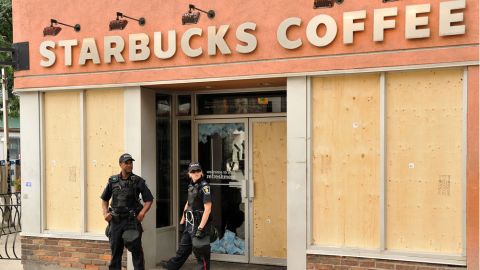The Arrogance of “Unlimited” Growth

What’s the Big Idea?
It’s not an uncommon problem – it happened to McDonald’s, it happened to IBM, and it even happened to Apple, says Nancy Koehn, professor of business administration at Harvard. Big companies start off with verve and energy and aspiration and incredible values that fuel their growth, then grow to the point that they’re no longer in tune with what really moved the enterprise forward in the first place. Watch the video:
What’s the Significance?
No company symbolizes precipitous growth better than Starbucks. During the 1990’s, the chain’s success was unrivaled: it seemed as if a new store was being built on every suburban block in the country. But around 2006, retail sales began to slow almost as quickly as they’d taken off. Three elements combined to undermine Starbucks’ dominance in the very market (upscale coffee drinks) that they’d created. Years of incremental negligence lead to a lack of attention to customer experience, the inability to fend off competition from other chains, and general organizational decline — the pursuit of “growth for growth’s sake,” according to Koehn.
The story of Starbucks’ decline actually began before the recession, but once the recession hit, the business’ intrinsic weaknesses were exposed. McDonald’s ran ads that asked, “Why pay $5.00 for a cup of coffee?” Magazines advised readers to save money by making their own coffee and bringing it to work. BPA-free mugs became ubiquitous travel accessories.
“There’s another piece to this story that’s really, really important,” argues Koehn. “The culture of the organization changed by degrees. They managed themselves into an organizational decline. And if you ask [Starbucks CEO Howard] Schultz now, he’ll say, “It’s because we pursued growth for growth’s sake…’ We were so bent on opening eight stores a day – partly to please the capital markets, partly because we thought we knew how to do this so well that we lost sight of the real energy and oxygen that kept this organization alive.”
Ultimately, this strategy was more about personality than effectiveness. Schultz “let the thing get arrogant as he got arrogant.” The purpose of the company was lost in the thoughtless impulse to expand, because growth is not good if it means sacrificing what was worthwhile in the first place. For CEO’s, Koehn has a few words of tough love: If you want to keep the entrepreneurial spirit alive, lose the hyper-competitive attitude and pay attention to what’s actually happening to your business.





